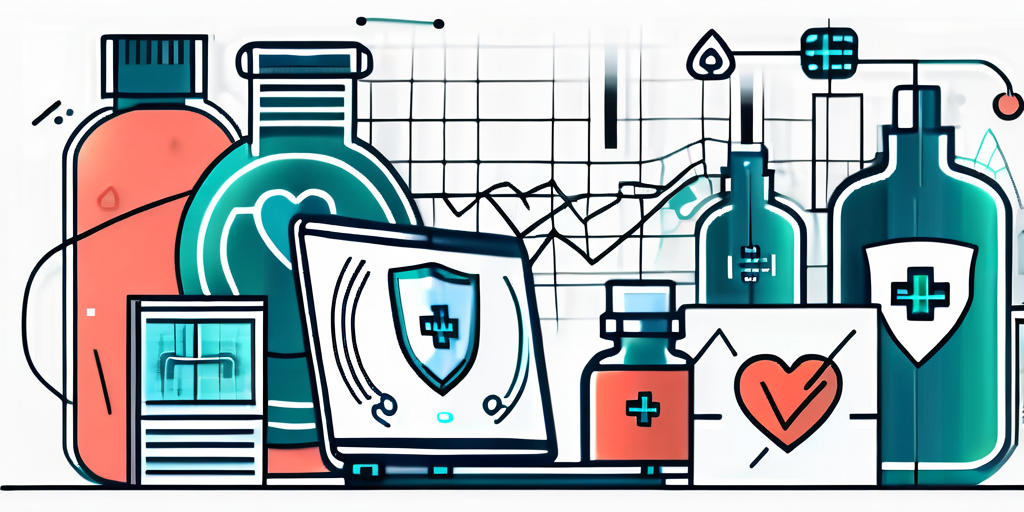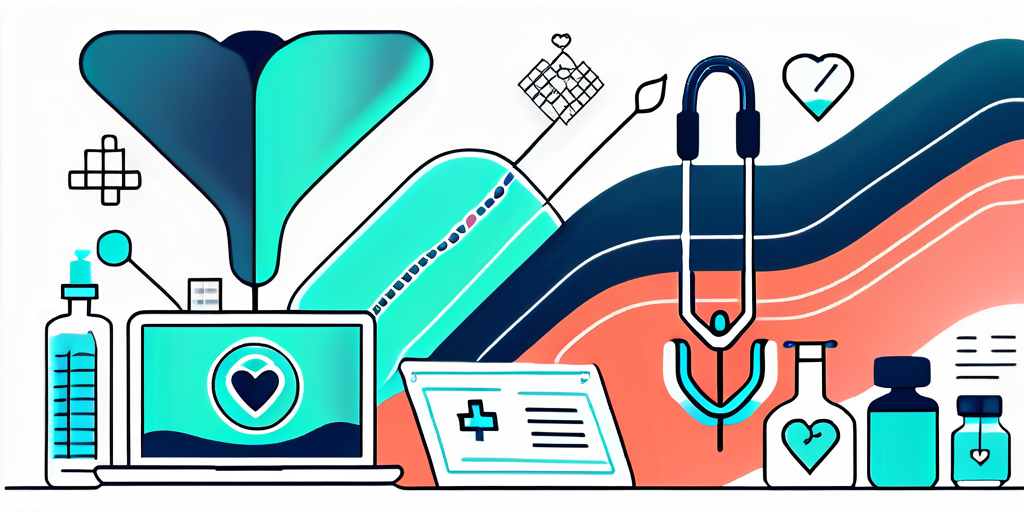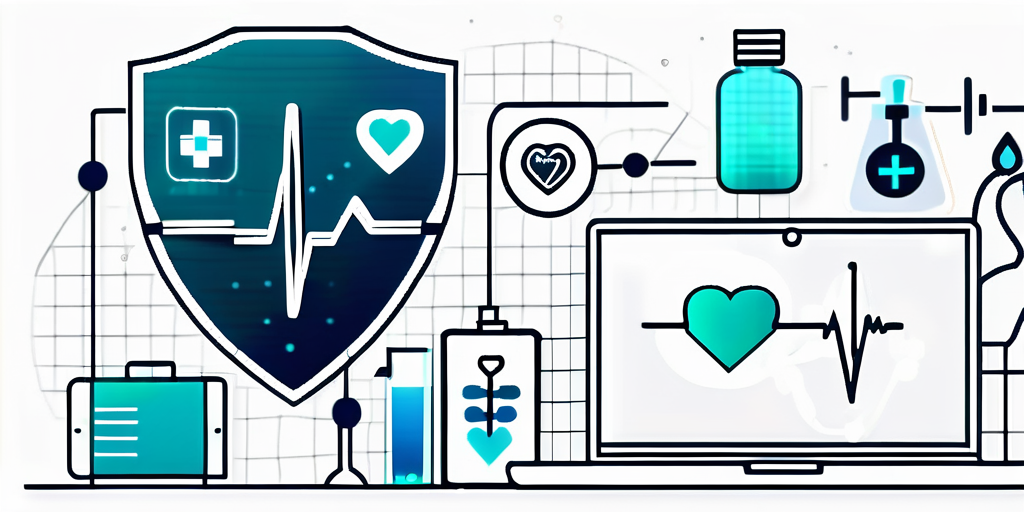In today’s technologically advanced world, where information flows freely and rapidly, the need for robust cyber security measures has become paramount across various industries. One sector that is particularly vulnerable to cyber attacks is healthcare. With sensitive patient information at stake, it is crucial that healthcare institutions prioritize and invest in comprehensive cyber security strategies to protect patient data from unauthorized access, theft, and misuse.
Understanding Cyber Security in Healthcare
Before delving into the importance of cyber security in healthcare, it is essential to have a clear understanding of what cyber security entails. Cyber security refers to the measures put in place to protect computer systems, networks, devices, and data from unauthorized access, malicious attacks, and potential breaches. It involves the use of technologies, processes, and policies aimed at safeguarding sensitive information and ensuring the confidentiality, integrity, and availability of data.

Defining Cyber Security
Cyber security encompasses a wide range of practices and techniques to mitigate risks and threats posed by cybercriminals. This includes implementing firewalls, intrusion detection systems, encryption, multi-factor authentication, regular system updates, and robust incident response plans. By adopting a proactive approach that focuses on prevention, detection, and response, healthcare institutions can significantly reduce the likelihood of cyber attacks and protect patient information.
The Role of Cyber Security in Healthcare
In the healthcare sector, cyber security plays a critical role in safeguarding patient information. Patient data, including medical records, personal details, and financial information, are stored in electronic health records systems, making them susceptible to cyber threats. Cyber security measures not only protect the privacy and confidentiality of patients, but they also ensure the availability and accuracy of health records, allowing healthcare providers to deliver quality care and make informed decisions.
Furthermore, cyber security in healthcare goes beyond protecting patient data. It also extends to securing medical devices and infrastructure. With the increasing use of connected medical devices, such as pacemakers, insulin pumps, and monitoring systems, there is a growing concern about the vulnerability of these devices to cyber attacks. A breach in the security of these devices can have life-threatening consequences for patients.
Healthcare organizations must implement robust security measures to protect these devices from unauthorized access and tampering. This includes conducting regular vulnerability assessments, implementing strong authentication mechanisms, and ensuring that software and firmware updates are promptly applied. By prioritizing the security of medical devices, healthcare providers can ensure the safety and well-being of their patients.
The Vulnerability of Patient Information
Despite the importance of maintaining robust cyber security measures, patient information remains vulnerable to cyber attacks. Understanding the nature of patient data and potential threats that can compromise their security is essential for healthcare institutions to adequately protect and prevent unauthorized access to sensitive information.

Healthcare organizations face a constant challenge in safeguarding patient information due to the evolving landscape of cyber threats. With the increasing digitization of medical records and the interconnected nature of healthcare systems, the potential attack surface for cybercriminals continues to expand. This dynamic environment requires proactive measures and continuous monitoring to detect and mitigate vulnerabilities before they are exploited.
The Nature of Patient Data
Patient data encompasses a wide range of information, including personal identifiers such as names, addresses, and social security numbers. It also includes medical history, treatment plans, laboratory results, and medication information. This wealth of data is highly valuable to cybercriminals, as it can be used for identity theft, insurance fraud, or sold on the dark web. Therefore, securing patient data is crucial to protect patients’ privacy and prevent potential harm.
Furthermore, the interconnected nature of electronic health records (EHRs) and the sharing of data among healthcare providers increase the complexity of data protection. As patients move between different healthcare facilities or engage with various medical professionals, ensuring the secure exchange and storage of their information becomes a multifaceted challenge. Healthcare organizations must implement robust encryption protocols, access controls, and data governance frameworks to maintain the confidentiality and integrity of patient data across disparate systems.
Potential Threats to Patient Information
Cyber threats in the healthcare sector come in various forms, including malware, ransomware attacks, phishing, and social engineering. Malicious actors can exploit vulnerabilities in outdated software, weak passwords, or even target unsuspecting employees through social manipulation techniques. The consequences of successful cyber attacks can be devastating, leading to a breach of patient trust, financial losses, and legal repercussions for healthcare institutions.
Moreover, the emergence of advanced persistent threats (APTs) targeting healthcare organizations poses a significant risk to patient information security. APTs are sophisticated cyber attacks orchestrated by well-funded and highly skilled threat actors with the intent of infiltrating networks and exfiltrating sensitive data over an extended period. Detecting and mitigating APTs require a combination of advanced threat intelligence, behavioral analytics, and incident response capabilities to thwart persistent attacks and protect patient confidentiality.
The Consequences of Cyber Attacks in Healthcare
Cyber attacks in the healthcare sector can have far-reaching consequences that extend beyond compromised data. The impact on patient trust and the financial implications for healthcare institutions highlight the urgent need for robust cyber security measures.

Healthcare organizations are increasingly becoming prime targets for cyber attacks due to the vast amount of sensitive data they hold, including medical records, financial information, and personal details. The repercussions of these attacks go beyond just the immediate breach and can have lasting effects on both patients and institutions.
Impact on Patient Trust
Cyber attacks that result in the loss or compromise of patient data can erode patient trust in healthcare institutions. Patients rely on healthcare providers to protect their personal information, and any breach of that trust can lead to an erosion of confidence in the healthcare system as a whole. In addition, patients may be hesitant to share sensitive or critical information with healthcare providers, hampering the delivery of quality care.
Furthermore, the psychological impact on patients whose data has been exposed can be significant. The fear of identity theft, medical fraud, or personal information misuse can create anxiety and distrust towards the healthcare system, affecting their willingness to seek necessary medical treatment.
Financial Implications for Healthcare Institutions
The financial implications of cyber attacks can be crippling for healthcare institutions. The cost of remediation, investigation, legal fees, potential lawsuits, and regulatory penalties can drain valuable resources. Moreover, the loss of reputation and patient trust can have long-term financial repercussions, leading to reduced patient numbers and revenue. Investing in robust cyber security measures can prevent such financial consequences and safeguard the long-term sustainability of healthcare institutions.
Additionally, the ripple effects of a cyber attack on a healthcare institution can extend to its partners and suppliers. Any breach in the interconnected network of healthcare providers can disrupt operations, compromise patient care, and create a domino effect of financial losses throughout the healthcare ecosystem.
Implementing Robust Cyber Security Measures
To effectively protect patient information, healthcare institutions need to implement robust cyber security measures that encompass both technological solutions and staff training.
Cyber security is a critical aspect of healthcare institutions in today’s digital age. With the increasing threat of cyber attacks and data breaches, it is essential for organizations to prioritize the protection of patient data through comprehensive security measures.
Essential Cyber Security Protocols
Healthcare institutions should adopt essential cyber security protocols to protect patient data. This includes regularly updating software and patches, implementing firewalls, utilizing encryption for sensitive data, and conducting regular vulnerability assessments. In addition, establishing strong password policies, implementing multi-factor authentication, and ensuring secure remote access to systems can significantly reduce the risk of unauthorized access.
Regularly monitoring network traffic and implementing intrusion detection systems are also crucial components of a comprehensive cyber security strategy. By proactively identifying and responding to potential threats, healthcare institutions can strengthen their defenses and mitigate risks effectively.
The Role of Staff in Maintaining Cyber Security
No matter how robust the technological solutions in place, the human element remains a critical factor in maintaining cyber security. Healthcare institutions must prioritize staff training and education on safe computing practices, social engineering techniques, and phishing awareness. By creating a culture of cyber security awareness and fostering a sense of responsibility among staff members, healthcare institutions can enhance their overall cyber resilience.
Encouraging employees to report any suspicious activities, providing regular cyber security training sessions, and conducting simulated phishing exercises can help reinforce the importance of vigilance and proactive threat detection among staff members. Ultimately, a collaborative approach that involves both technological solutions and well-trained staff is essential in safeguarding patient information and maintaining the integrity of healthcare systems.
The Future of Cyber Security in Healthcare
The landscape of cyber security in healthcare continues to evolve as cybercriminals become more sophisticated in their attack techniques. Staying ahead of emerging threats requires innovative and proactive approaches.
Emerging Cyber Security Technologies
Advancements in technology present opportunities for healthcare institutions to bolster their cyber security defenses. Artificial intelligence, machine learning, and behavioral analytics can help identify potential threats and anomalies, allowing for faster detection and response to cyber attacks. Collaborative efforts between the healthcare industry and security solution providers can drive the development of cutting-edge technologies that tackle emerging threats effectively.
The Role of Government in Cyber Security Regulation
Recognizing the importance of cyber security in healthcare, governments are increasingly focusing on strengthening regulatory frameworks. By establishing regulations, standards, and guidelines, governments aim to encourage healthcare institutions to prioritize cyber security, create accountability, and ensure compliance. Collaboration between public and private entities is vital for developing effective cyber security strategies and establishing a secure healthcare ecosystem.
In conclusion, ensuring robust cyber security in healthcare is paramount to safeguarding patient information. Healthcare institutions must understand the nature of cyber threats, invest in comprehensive security measures, and prioritize staff training. By doing so, they can protect patient privacy, maintain patient trust, and safeguard the financial sustainability of healthcare institutions. The future of cyber security in healthcare relies on innovation, collaboration, and proactive measures to counter emerging threats and preserve the integrity of patient information.
